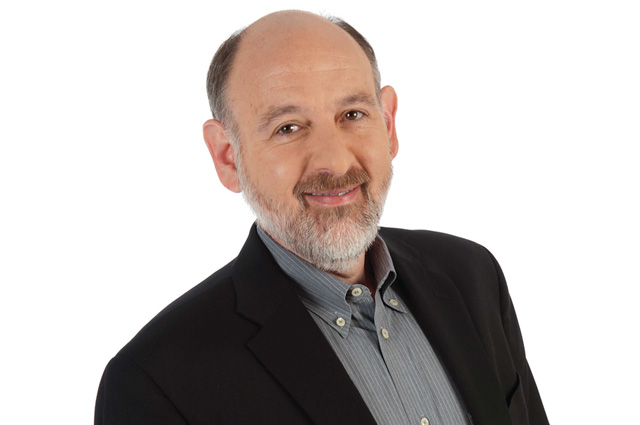Jordan has interviewed, consulted and learned from more than one hundred leading researchers, medical doctors and health professionals around the world.
He reached out to some of them and asked:
“What is the one piece of advice you would offer to people who want to improve and optimize their brain and mental health?"
Here is what they had to say...
Dr. David Perlmutter, MD, Neurologist, Author of Brain Maker and Grain Brain
In my opinion, aerobic exercise is at the top of the brain healthy list.
Dr. Hyla Cass, MD, Integrative Psychiatrist, Author of Natural Highs and Supplement Your Prescription
If the gut is inflamed, so is the brain! Many psychiatric issues are due to inflammation, so avoid inflammatory foods. Gluten and dairy tend to be the worst offenders.
And don't follow a low-fat diet! Make sure to get sufficient fats and protein. Avoid trans fats, but eat healthy fats like omega 3’s found in fatty fish, and medium chain triglycerides from coconut oil. These are known brain boosters.
Also, avoid sugar and excess carbohydrates, as they can induce insulin resistance and brain inflammation. In fact, Alzheimer’s disease is now known as Type 3 Diabetes.
Lastly, eat five servings of fruits and vegetables every day, as their antioxidants can preserve our brain and overall health.
Dr. Daniel Amen, MD, Integrative Psychiatrist, Brain Imaging Expert, Director of the Amen Clinics, and Author of Change Your Brain, Change Your Life
Make better decisions. It's the most important thing to start doing.
Dr. Peter Breggin, MD, Psychiatrist, Author of Guilt, Shame and Anxiety: Understanding and Overcoming Negative Emotions
Pursue a wide variety of generally accepted health measures, including rest; moderate physical exercise; mental exercise in the form of any activities that personally interest and engage you; meditation, prayer and other practices that calm the mind and lift the spirit; and possibly individual, couples or family therapy with a professional who does not recommend psychiatric medications. Recognizing yourself as a source of love, and finding people and activities to love, is the best brain medicine.
Dr. Brett Osborn, MD, Neurosurgeon and Author of Get Serious
Strength train two to three times each week.
Strength training exerts its effects through a variety of mechanisms. It induces the synthesis of BDNF, a brain-derived chemical messenger which enhances synaptogenesis and neurogenesis, increases cerebral blood flow (potentially washing out toxic metabolites), improves insulin sensitivity, and positively affects one’s lipid profile.
Stick with basic exercises such as the squat, deadlift, overhead press, bench press and pull-up or chin-up.
Dr. James Greenblatt, MD, Integrative Psychiatrist, Chief Medical Officer at Walden Behavioral Care, and Author of The Breakthrough Depression Solution and Answers to Anorexia
Compelling scientific evidence now identifies malnutrition as a critical factor in brain health fitness and various mental illnesses. As vitamins and minerals serve as co-factors in almost every enzymatic reaction in the brain, it is important to assess for adequate nutrient levels regularly to ensure that you are optimizing brain health.
One of the most important messages that I always share with my patients is that dietary intake is not always reflective of adequate nutrition. It is important that individuals consult with their health care providers to regularly assess for simple nutritional deficiencies such as vitamin D and vitamin B12 levels, which both have profound effects on brain function and mood. Nutritional deficiencies of these two vitamins have been found to exacerbate symptoms of depression, anxiety, and even contribute to memory loss and cognitive decline.
Dr. Romie Mushtaq, MD, Neurologist and Mindfulness Teacher
As a neurologist and mindfulness teacher, I bring Western Medicine and Eastern wisdom together for clients to optimize brain and mental health.
The one thing I routinely advise clients is that sleep is sacred. In our overscheduled lives, sleep is the first thing to be sacrificed. When we deprive ourselves of sleep, we deprive our minds and bodies of critical rest and healing time. The end result of sleep deprivation is poor focus, declining memory and cognition, depression, imbalanced hormones, and weight gain.
Dr. Ann Childers, MD, Psychiatrist
It is increasingly clear that refined starches (grain starches, including whole grains) and sugars impair brain health. These are nutritionally destitute calories, suspected of promoting what some researches refer to as Type 3 Diabetes (also known as Alzheimer’s disease).
And the brain is about 60% fat, and holds as much as 25% of the body's cholesterol. So my advice for people who want to optimize brain health is to reduce calories from carbohydrates and follow a nutrient dense diet that includes ample healthy fats and cholesterol. This includes grass-fed butter or ghee, and well-sourced, unprocessed whole eggs.
Dr. Stuart Shipko, MD, Psychiatrist and Author of Surviving Panic Disorder and Xanax Withdrawal
The brain is a part of the body. The best way to optimize the brain is to have good health habits: proper diet, regular vigorous exercise, lots of sleep.
Dr. Joanna Moncrieff, MD, Psychiatrist, Author of The Bitterest Pills and The Myth of the Chemical Cure
What is good for your mind and body is what has always been good for it: being safe and secure, having enough money not to worry, taking part in purposeful or meaningful activities that contribute to your community, being able to sustain yourself, developing your skills, doing things you enjoy, having loving friends and family. Aristotle described it as living a ‘good’ or ‘virtuous’ life.
Dr. Andrew Hill, PhD, Founder of the Peak Brain Institute and Lead Neuroscientist at truBrain
Realize that there are tools out there to help you take control of your brain. Don't be satisfied with problems in brain function or performance.
The brain is a pattern matching machine whose job is largely to shift and adapt. You have a lot of control already, through modifiable behaviors that change trajectories of performance and quality in life.
The most accessible are removing sugar and developing a meditation practice. If you want even more change, explore tools like nootropics or neurofeedback, for either short-term support or long-term gains. Technology and quantified culture has brought these tools within reach. Don't settle for suboptimal. Shift happens. How will yours?
Dr. Jeffrey Bland, PhD, Founder and President of Personalized Lifestyle Medicine Institute, Author of The Disease Delusion
My one piece of advice would be to manage your insulin. And stay mentally active.
Dr. Jill Littrell, PhD, Psychologist, Associate Professor at Georgia State University
Eat an anti-inflammatory diet (lots of fish, tumeric, fresh vegetables, cut out high fructose corn syrup, and foods prepared with shelf extenders), exercise, add yoga, and spend time with supportive others. Check out my website Littrell's Neuroscience of Well-Being and Mental Illness for references and rationale.













